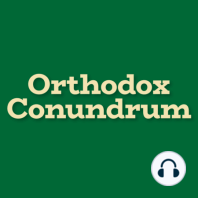35 min listen

Abortion in Jewish Law, and Roe v. Wade in Jewish Public Discourse (110)
Abortion in Jewish Law, and Roe v. Wade in Jewish Public Discourse (110)
ratings:
Length:
52 minutes
Released:
May 9, 2022
Format:
Podcast episode
Description
On Monday, May 2, Politico obtained a draft majority opinion, written by Supreme Court Justice Samuel Alito, to overturn Roe v. Wade, the 1973 court decision that broadly granted federal protection of abortion rights. The Court has affirmed that the leaked document is authentic, but also said that it’s preliminary. Regardless, this means that the 49-year-old constitutional right to abortion may soon be overturned, and instead each of the fifty states will make its own legislative decision regarding the legality of abortion. Jewish people on both sides of this issue are lining up to support or denounce the potential Supreme Court decision, but it seems to be - perhaps only anecdotally - that many are doing so without a full investigation or understanding of what halacha actually says about abortion. As Orthodox Jews, we may or may not want halacha to inform public policy decisions; but we also should at least know the approach of Jewish law before wading into the debate. In order to get a better grasp of the halachic thinking that surrounds abortion, Scott invited Rabbi Dr. Jeremy Wieder back on the podcast to explain the issues involved, as well as to assert what he feels should be the Orthodox approach toward the potential overturning of Roe v. Wade. (Rabbi Wieder asked me to issue a correction: at 23:08 he cites a second explanation of the Baalei Tosafot for why a person can desecrate Shabbat to save a fetus. This terminology used - "חלל עליו שבת אחת" - is used by Ramban, not Tosafot. Tosafot adopt the same fundamental stance, though they actually call it פקוח נפש.) This halachic discussion with Rabbi Wieder includes a significant amount of halachic terminology. While much of it is translated in the course of the podcast, some of it might be unfamiliar to many listeners. With that in mind, I am including a glossary of sorts, along with the time signatures where terms first appear, in posts in the Orthodox Conundrum Facebook Page (https://www.facebook.com/OrthodoxConundrum/posts/pfbid0teaNi4YJoVHNYYMJKjKX26KqE66Kq2VUomDq4JLZb5CDK4K8pmbPmeiFiBTLfAoul) and the Orthodox Conundrum Discussion Group (https://www.facebook.com/groups/432020081498108). If there are other terms that are unclear, please go to the post in the Discussion Group, comment there, and I or another listener will try to explain what the terminology means. Thanks to all of our Patreon subscribers, who have access to bonus JCH podcasts, merch, and more - we appreciate your help, and hope you really enjoy the extras! Visit the JCH Patreon site at https://www.patreon.com/jewishcoffeehouse. Check out https://jewishcoffeehouse.com/ for the Orthodox Conundrum and other great podcasts, and remember to subscribe to them on your favorite podcast provider. Also visit https://www.jchpodcasts.com/ to learn all about creating your own podcast. Music: "Happy Rock" by bensound.com
Released:
May 9, 2022
Format:
Podcast episode
Titles in the series (100)
Jewish Law as Rebellion: An Interview with Rabbi Nathan Lopes Cardozo (Episode 8): Rabbi Nathan Lopes Cardozo is at the cutting edge… by Orthodox Conundrum